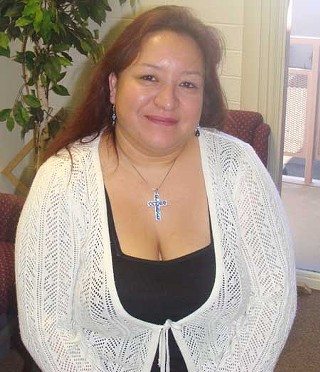Theresa Ulibarri is a co-chair of Diverse Voices in Prevention. Ulibarri works as a victim advocate with Mothers Against Drunk Driving Southern Arizona, but volunteers with Diverse Voices, along with other community representatives, to organize an annual cultural-competency training for those who work in recovery and with youth and families. The next training will be on April 29 and 30, 2010. If you want to be involved, give her a call at 322-5253, or contact Community Prevention Coalition administrator Amy Bass at 205-4781.
What is Diverse Voices in Prevention?
Diverse Voices in Prevention is a subcommittee for the Community Prevention Coalition (CPC). ... Our main thing is we are advisers to the CPC to make sure the subcommittee develops culturally competent materials ... especially geared toward prevention.
Is there a specific focus in your mission?
Drug and alcohol prevention with youth who are Latino and Native American. A few years ago, there was a needs assessment in Pima County that showed we aren't doing enough to reach out to Latino and Native American kids in our community. In response, we're going into our third year of training professionals in the community who work with Native American and Latino youth. Sometimes, that means going to their office with speakers to help them learn to be culturally competent in how they work with the youth.
Who are the people in this subcommittee?
We're made up of professionals from the community: nonprofits; faith-based organizations; individuals who care; people who work in behavioral health (and) recovery; juvenile court; attorneys; and probation officers. Our focus is primarily cultural-competency training. In past trainings, we've always had representatives come from juvenile court, mental-health workers and teachers, but this is really geared toward anybody who has to work with Latino and Native American youth. The last two years, we've felt very successful based on the feedback.
What did the original needs assessment tell us about Pima County?
The needs assessment was done by the governor's office a while ago, when CPC came into focus. They noticed there was such a high need to work on prevention, and the two largest underserved populations were identified as Latino and Native American youth.
What is cultural competency?
It's knowing more than what's on the surface. You know, some people really think all Latinos live on the southside. ... We've learned that cultural competency is important when working with people in (drug and alcohol). One shoe doesn't fit everyone. If you're more culturally sensitive, you're more personally sensitive to what needs are, and that makes you much more competent to serve their needs.
During the trainings, has anything surprised you?
It depends on what speaker (the trainees) are hearing. Sometimes you really get to see what (trainees) are missing. One thing we try to do is show people that you can have two (Latino) youths come into your center, but culturally, they can be different. Their values are going to be different, and their families are going to be different. We want to give people in the community and the professionals out there the knowledge (and) skills ... not to just create a cookie-cutter program.
Everyone, I guess, is guilty of lumping different groups together.
It's true. But for a Chicano woman like myself, being a single parent, I can see where people expect less of me because of my culture, being a single parent ... If folks walk into a room with certain expectations, they are already missing the point. ... Yaqui and Tohono O'odham (are) two very different Native American cultures, with different beliefs.
Besides the April training, how else are you available to the community?
If an organization ... feels they need our help, we are here. We are the only group in Tucson that does this.
What are we up against? What are the statistics?
We know the average age for youth to start drinking in Pima County is 12. ... We know that alcohol kills more of our kids than coke and meth combined.
When is your next meeting?
On Oct. 23 at the Sam Lena (South Tucson branch library). We meet once a month, and right now, we're focused on the cultural-competency training, but if someone out there is interested in our work and being part of it, right now is a great time to join us.





